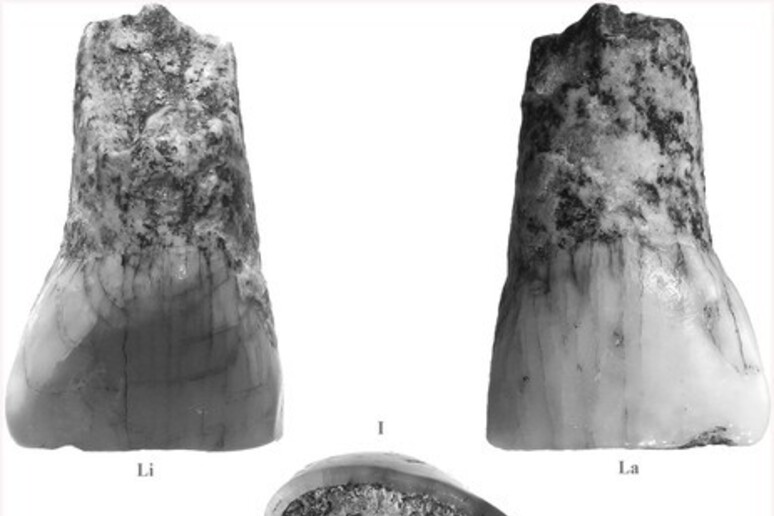The oldest human remains in Italy is a tooth that's reportedly 580,000 years old, according to a study published in Plos One scientific journal Wednesday of research led by Carlo Peretto of the University of Ferrara's Prehistoric and Anthropological Sciences department.
The tooth was found in the archeological site of Isernia La Pineta in Molise.
Peretto's team collaborated with other institutes and universities in Florence, Rome, Siena, and France.
The University of Ferrara said the tooth, which is that of a child about 5-7 years old, was found in 2014 and represents an exceptional discovery that sheds light on the variability of the Homo species during the Middle Pleistocene Ionian Stage, a period of geologic time between 781,000 to 126,000 years ago.
The tooth is most likely from the Homo heidelbergensis species, which was present on the European continent during that time, the University of Ferrara said, and for scientists the discovery represents more proof that man was present in one of the most important prehistoric sites in Europe.
For the past 40 years, the Isernia La Pineta site has been subject to continuous and systematic research by scientists from the University of Ferrara, who say that it still provides results which are of interest for understanding the life of our predecessors and for reconstructing the environment in which they lived.
ALL RIGHTS RESERVED © Copyright ANSA











